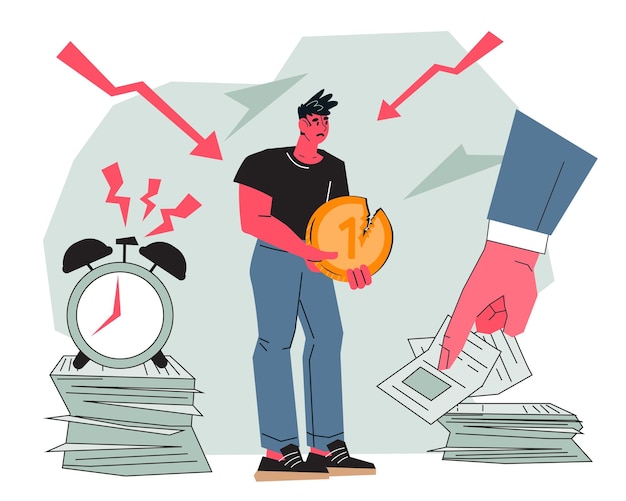
Are you burdened by feelings of guilt due to recurring overspending each month? The discomfort and unease associated with financial guilt are palpable. Money is an empowering tool intended to help you sustain yourself and your loved ones. The guilt associated with overspending can dent your financial confidence and leave you feeling less capable.
However, there is light at the end of the tunnel. You can regain control of your finances and rid yourself of the guilt by becoming more aware and understanding that responsible spending is permissible. Here are several practical steps to alleviate the guilt that comes with overspending.
IDENTIFY THE ROOT CAUSE
The initial step in conquering guilt about overspending is pinpointing the chief reason behind it. Scrutinize your current budget and spending pattern to identify areas where you might be exceeding limits. It’s crucial to have a transparent budget that defines your income and expenses.
By doing this, you can cross-check your transactions against your spending plan. You might discover frequent spending at a specific outlet or infrequent, but large splurges. Most people tend to overspend due to minor unexpected expenses like child clothing or excessive takeout orders.
It’s important to review your spending within the past week or month to track exactly where your money is draining.
IDENTIFY YOUR TRIGGERS
Next, identify your triggers. It’s essential to understand the psychology behind your spending once you’ve nailed down your overspending areas. Every purchase is triggered by something. It could be an instantaneous thought or exposure to advertisements and commercials.
I admit, I spend a significant amount of time on Instagram and occasionally find myself purchasing items endorsed in posts. Recognizing these spending triggers requires a high degree of self-awareness.
Take a moment to review your impulsive purchases and identify the triggers that led to them. Also, evaluate your feelings about the purchases after some time. Do you regret them? Understanding your thought process for spending can help avoid future mistakes and improve your decision-making.
NARROW DOWN YOUR VALUES
If spending guilt is burdening you, aim to understand the core of that guilt. Is it generalized guilt towards spending or is it tied to specific purchases? Either way, ascertaining clear values can help curb this guilt.
Identify what’s most vital for you in life and purchases you genuinely deem worthwhile. Self-realization will help you comfortably spend within your means without feeling guilty. Remember that prioritizing your values will naturally lead to discarding non-essential expenses and focusing solely on aspects that truly matter to you.
BALANCE YOUR SPENDING HABITS
Striking a balance is key in personal finance. Although you can’t spend extravagantly daily, you can strategize and prioritize your spending to alleviate guilt. Maintaining a balanced spending habit can help retain control over your finances even during temporary lapses.
Refocusing on your budget and tweaking your spending plan when necessary is vital. A structured, personal, and flexible budget is key. The 50/30/20 rule allocates 50% of your income towards living expenses, 30% to wants, and 20% to debt repayment and savings. This ensures a healthy balance of savings, meeting necessities, and spending on things you value.
DON’T JUST RELY ON WILLPOWER
Last but not least, solely relying on determination to overcome overspending guilt isn’t always effective. Life’s unpredictability might still lead you to overspend occasionally, thus being lenient with yourself is important. If you’re familiar with your spending triggers, you can devise new triggers that prioritize your budget and values.
Avoid temptations like commercials, marketing, and retailers that have previously caused you to overspend. Focus on paying yourself first, saving, and accomplishing debt repayment goals. I always experience a sense of accomplishment when I’ve saved or repaid debt early in the month. Therefore, if I even slightly overspend later, I don’t feel nearly as guilty or anxious.
SUMMARY
You no longer have to let overspending guilt control your life or dampen your financial confidence. It’s normal to sometimes go overboard or veer off budget. The key to staying financially stable is practicing self-awareness and understanding the factors that make you overspend. By doing so, you can minimize these instances and stay financially secure.
Now, how do you cope with overspending guilt?


